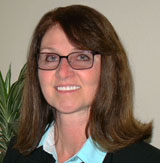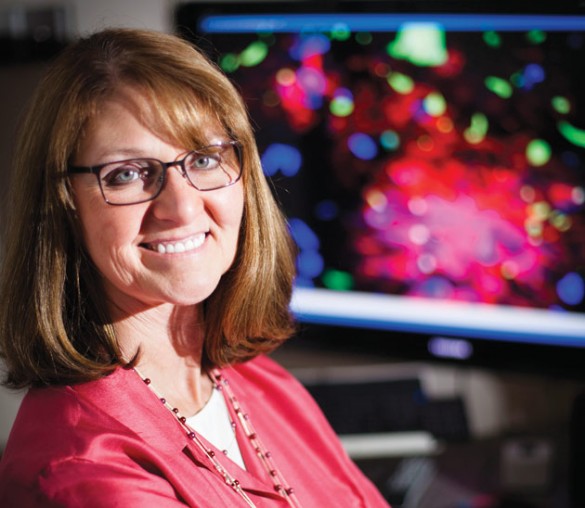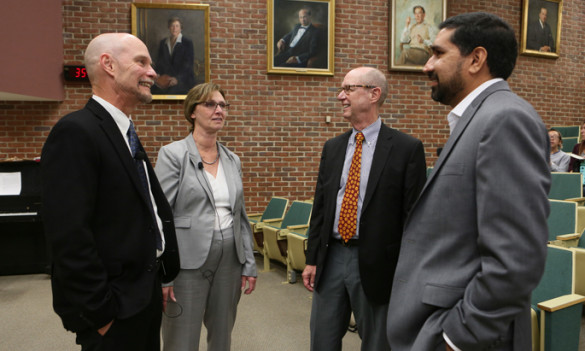Laura Dugan, M.D., the Larry L. Hillblom Chair in Geriatric Medicine at the University of California San Diego (UCSD), will join the Vanderbilt faculty on April 7 to direct Vanderbilt University’s Division of Geriatric Medicine, a division of the Department of Medicine.

Dugan, a neuroscientist, brings a robust research program studying the cellular mechanisms of nerves and neuronal injury in the brain, and the role of inflammation in the aging brain and in the development and progression of neurodegenerative diseases, like Alzheimer’s disease. The Division of Geriatric Medicine at UCSD, led by Dugan, ranked 20th in the nation out of more than 1,500 programs by U.S. News and World Report.
“I am delighted that Dr. Dugan will lead our efforts in Geriatrics,” said Nancy Brown, M.D., Hugh J. Morgan Professor of Medicine and Pharmacology and chair of the Department of Medicine. “She is an outstanding scientist who has demonstrated the ability to lead collaboratively.”
Dugan said she is impressed with Vanderbilt, an institution with a “sterling” neurosciences research reputation and a strong clinical and research geriatrics program as well. Combined with Vanderbilt’s strength in genetics, bioinformatics and personalized medicine, Dugan sees great things ahead in the institution’s contributions to geriatric medicine.
“I have a strong interest in bringing neuroscience and aging together, and Vanderbilt is a great place to bring this vision into existence,” Dugan said. “Vanderbilt fosters outstanding neuroscience research in the broadest sense — psychiatry, psychology, neurology, and the Vanderbilt Brain Institute. Studying Alzheimer’s and other degenerative diseases provides vital data, but understanding the brain as it ages may give us additional ways to keep older adults healthy.”
According to the Administration on Aging, part of the Department of Health and Human Services, there were 39.6 million people 65 and older in 2009 (the latest year for which data is available), or 12.9 percent of the U.S. population, about one in every eight Americans. By 2030, there will be about 72.1 million older persons, more than twice the number in 2000. Representing 12.4 percent of the population in 2000, people 65 and older are expected to grow to be 19 percent of the population by 2030.
“Dr. Dugan is an outstanding leader, clinician and investigator,” said Tom Elasy, M.D., MPH, Ann and Roscoe R. Robinson professor of Clinical Research at the Diabetes Center and director of the Division of General Internal Medicine and Public Health. “Her clear and compelling vision for Geriatric Medicine resonates well with our priorities.”
Dugan said there’s a strong need for more innovative and effective ways to care for seniors. “It’s an emotionally and financially difficult situation for many families. They love their parents, or aunt or uncle or spouse, and will do anything for them, but they encounter a system that’s extremely difficult or impossible to navigate to get the health care they need. The future of our country and the world can benefit from a different approach.”
Dugan said caring for the elderly also affects the economic growth of the country. She sees a need for better preventive geriatric medicine.
“If we continue our current health care approach for older individuals — if you just run the demographic numbers — it’s going to be devastating financially and also an impairment to economic growth in our country,” she said. “When an older individual is ill and the system can’t deal with them, then the family takes on that challenge, impacting the workforce that’s supposed to be driving the economic engine of this nation.
“There’s a compelling need to bring some of the research that’s gone into aging and geriatrics into the clinic more rapidly than is being done right now,” Dugan said. “In a practical sense, if we don’t do a better job of keeping people of all ages healthy, no Obamacare or anything can keep the financial result from being devastating. I think we can provide much better care of older individuals, using preventive geriatrics along with research to provide outstanding innovative health care of seniors.”
Before joining the UCSD faculty in 2005 with joint appointments in Medicine and Neurosciences, Dugan was at Washington University for 11 years, where she cared for patients with dementia and Alzheimer’s.
She received her bachelor’s degree in Life Sciences from Massachusetts Institute of Technology, and her medical degree from The Ohio State University College of Medicine. She completed residency training in Internal Medicine at the University of California, San Francisco, and was chief resident in Medicine her final year.
Her interest in the aging brain emerged during her residency, after which she completed a geriatric fellowship at Stanford.
“I realized that about 25 percent of my patients were over 65. They have different care needs, different diseases. I didn’t feel like I had the expertise to do a good job, and I realized this is who we’re going to be caring for in the future, recognizing that the demographics even then were aging.”
Dugan said that every family should be fortunate enough to spend quality time with its older members.
“I had very good luck. I knew all four of my grandparents; both my paternal grandfather and my maternal grandmother lived to a very old age. My parents are both very healthy seniors and my son has very healthy grandparents. There’s a value in knowing these adults as really wonderful family members.”
Dugan and her husband, Paul Demediuk, a research and IT manager at UCSD, have an 8-year-old son, Brendan. “We’re very excited to be in Nashville and to live closer to our families in Ohio and Illinois.”















